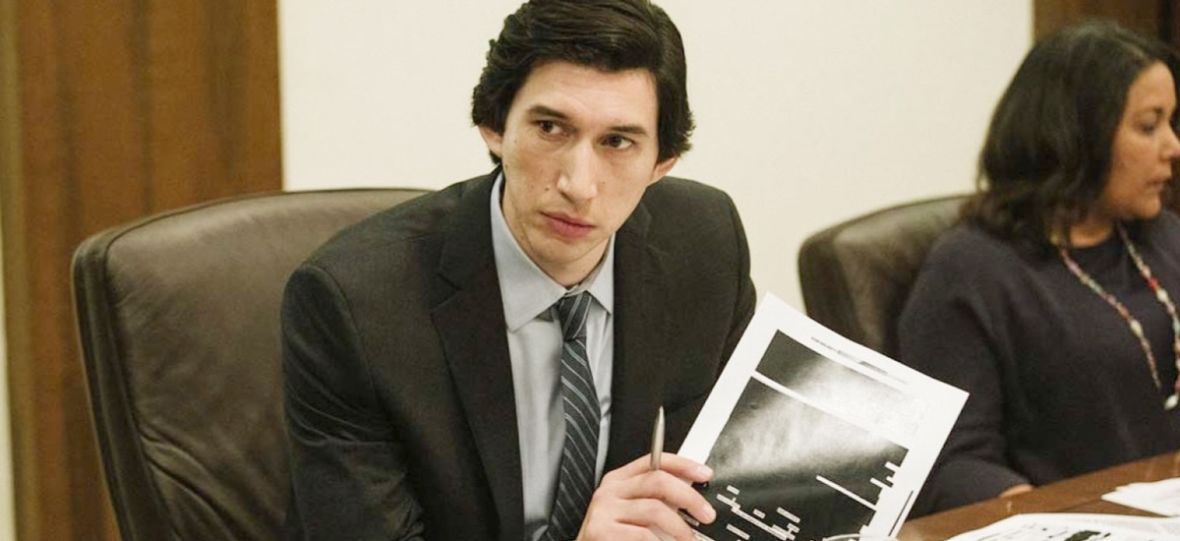This film dramatises the efforts of idealistic Senate staffer Daniel J. Jones (Adam Driver) in investigating the CIA’s Detention and Interrogation Program, which was created following the 9/11 attacks as a means of obtaining further information from terrorist suspects. However, his investigation not only reveals the lengths that the CIA went to break the law by sanctioning torture, but also results in the Agency attempting to stifle the report to prevent the truth from being known.
Writer-director Burns effectively dramatises the real-life uncovering of the torturing of terrorist suspects by the CIA without resorting to overly-dramatic conventions, instead letting the events speak for themselves onscreen. The sequences showing the suspects being subjected to the ‘enhanced interrogation techniques’ manage to convey the horror of the methods, including suspending them naked and in one particularly horrifying example subjecting one suspect to forced rectal rehydration, without resorting to overly graphic depictions.
Likewise, Jones and his team’s discovery of the true intentions behind the CIA’s adoption of the techniques, as well as their redundant nature, also benefits from letting the content of the scenes speak for itself. This naturalistic approach helps to emphasise the very real nature of the situation that the team finds itself in, with no extra drama required to amplify the already-high stakes.
Driver’s central performance further helps to serve this commitment to realism, depicting Jones’s growing obsession with compiling the report and his resulting outrage with the CIA with the appropriate levels of energy without resorting to histrionic Oscar-baiting speeches that would be expected from a typical big-screen dramatisation.
However, the most striking aspect of the film is its wholehearted condemnation of the use of torture as a method of fighting the ongoing War on Terror, as opposed to other US-based films and TV shows such as Zero Dark Thirty – the latter of which receives a notable offhand mention in one scene that is almost certainly meant to highlight this very contrast.
The Report doesn’t have the attention-grabbing characteristics of more standard dramatisations that usually come out during this time of year. However, these absences are what make the film’s revelations all the more powerful and impactful.
